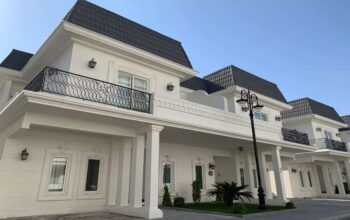Dubai’s real estate market has long been a magnet for international investors seeking high returns, tax-friendly policies, and world-class infrastructure. The city’s global appeal lies in its ability to attract buyers from diverse regions, including Europe, Asia, Africa, and the Middle East. But one factor that often plays a significant role in investment decisions is currency fluctuation. As exchange rates rise and fall, the value of property transactions, rental yields, and returns on investment can shift considerably. For global investors, understanding this dynamic is crucial to making informed and profitable real estate choices in Dubai.
For many international buyers, buying property in Dubai is more than just a lifestyle choice — it is also a financial strategy influenced by currency values. Exchange rates impact how much an investor spends on property purchases, mortgage payments, and even the rental income they repatriate to their home country. The timing of when investors enter the market or convert earnings can significantly affect their returns, making currency awareness essential in building a successful property portfolio.
Why Currency Fluctuations Matter
When investors purchase property in Dubai, transactions are typically conducted in UAE dirhams (AED). For buyers using foreign currencies, the exchange rate at the time of purchase directly affects how much the investment costs in their home currency. For example, a British buyer purchasing property when the pound is strong against the dirham will spend less compared to when the pound is weaker. This difference can significantly impact the affordability of luxury apartments or villas.
The same principle applies to rental income. Investors who earn in dirhams but repatriate profits to their home countries may see their actual returns fluctuate depending on the strength of their domestic currency against the dirham.
Favorable Currency Conditions: An Investor Advantage
Currency fluctuations can sometimes create golden opportunities for investors. When the dirham is strong relative to another currency, it signals stability for investors holding assets in Dubai. Conversely, when an investor’s home currency strengthens against the dirham, buying property becomes more affordable. For instance, a surge in the U.S. dollar often benefits American investors, as the dirham is pegged to the dollar, keeping investments in Dubai relatively stable.
European and Asian investors, however, may experience higher or lower entry costs depending on the performance of the euro, pound, or yen against the dirham. Those who time their purchases during favorable exchange rate windows can significantly maximize their long-term gains.
Risks of Currency Volatility
While favorable conditions can benefit investors, volatility poses real risks. A sudden drop in an investor’s home currency means that repatriating rental income or profits could yield less value than expected. Similarly, the cost of maintaining or expanding property portfolios in Dubai could rise if their currency weakens against the dirham.
This uncertainty can complicate financial planning, especially for retirees or investors relying on consistent income from Dubai properties. Exchange rate instability also affects international mortgage payments if loans are denominated in foreign currencies.
Mitigation Strategies for Investors
To counter these risks, savvy investors adopt a range of strategies:
- Hedging Currency Risks: Some investors use financial instruments like forward contracts or options to lock in favorable exchange rates.
- Diversification: Spreading investments across multiple currencies and markets reduces reliance on one particular exchange rate.
- Reinvesting Locally: Many investors choose to reinvest rental income within Dubai rather than converting it back to their home currency, minimizing exposure to fluctuations.
These strategies allow buyers to focus on maximizing returns from their properties without being overly impacted by short-term market volatility.
Long-Term Outlook of the Dirham
One advantage for international investors is the UAE dirham’s peg to the U.S. dollar, which has provided decades of currency stability. This reduces volatility compared to markets where exchange rates fluctuate daily against global benchmarks. While short-term variations in other currencies can affect entry costs and income repatriation, the dirham’s dollar peg gives Dubai a level of financial predictability that few emerging markets can offer.
How Currency Fluctuations Influence Market Trends
Currency shifts not only affect individual investors but also shape larger market trends. For example, when the Indian rupee weakens, the number of Indian buyers in Dubai often increases, as they seek a stable and appreciating market for their wealth. Similarly, fluctuations in the pound sterling after Brexit spurred increased British investment in Dubai, as investors sought to hedge against local uncertainties.
This inflow of international capital often boosts demand, influencing property prices and rental yields. Developers and real estate agencies monitor these patterns closely, adjusting their offerings to cater to specific buyer groups depending on global currency conditions.
Final Thoughts
Currency fluctuations are an unavoidable part of international real estate investment, and Dubai is no exception. While exchange rates can create challenges, they also open doors to unique opportunities. Investors who understand these dynamics — and who time their decisions around favorable conditions — are better positioned to maximize returns while minimizing risks.
With the dirham’s peg to the U.S. dollar providing long-term stability, Dubai continues to stand out as a resilient and profitable market for global investors. For anyone considering buying property in Dubai, understanding how currency movements affect purchasing power and returns is a vital step in building a successful real estate strategy.




